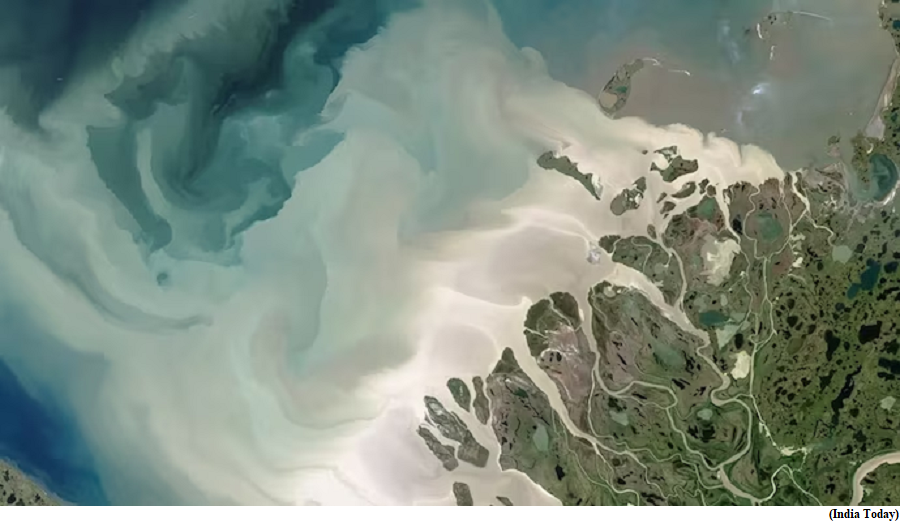Lok Sabha passes Press and Registration of Periodicals Bill (GS Paper 2, Governance)

Why in news?
- Recently, the Lok Sabha passed the Press and Registration of Periodicals Bill, 2023, repealing the colonial era law of the Press and Registration of Books Act, 1867.
- The Bill has already been passed by Rajya Sabha in the Monsoon Session.
Salient features:
Grant of title allotment and Certificate of Registration Periodicals
- The Bill provides for a simple online mechanism to apply for title verification and grant of certificate of registration by the Press Registrar General to a periodical as a simultaneous process.
- There is no requirement of furnishing any declaration before the local authority or its authentication by the local authority.
- A person who has been convicted by any court for an offence involving terrorist act or unlawful activity, or having done anything against the security of the State shall not be permitted to bring out a periodical.
- Facsimile edition of a foreign periodical can be printed in India with prior approval of the Central Government and its registration with the Press Registrar General.
Printing Presses:
- A printer of a periodical to furnish an online intimation to the Press Registrar General and the local authority.
- No requirement by the Printer to file any declaration before the local authority or obtain authentication from the authority.
Role of District magistrate/local authority
- The Bill envisages minimalistic role of the District Magistrate/local authority with regard to grant of Certificate of Registration and title allotment.
- On receipt of an application, the District Magistrate is expected to provide its comments/NOC to the Press Registrar General within 60 days; thereafter the Press Registrar General can proceed to take a decision for grant of registration even where the comments/NOC are not received from the DM/local authority after 60 days.
- No requirement for a publisher to file any declaration before the District Magistrate.
Difference between the Press and Registration of Books Act 1867 and the Press and Registration of Periodicals Bill 2023
- Books which were part of the PRB Act 1867 have been taken away from the purview of the PRP Bill 2023, as books as a subject are administered by the Ministry of HRD.
- Printing presses do not have to file any declaration before the District Magistrate; only an online intimation has to be filed before the Press Registrar General and the District Magistrate.
- No declaration has to be filed by the publisher of the periodical before the District authority; application for title allotment and grant of Certificate of Registration would be made simultaneously to the Press Registrar General and the district authority and decision would be taken by the Press Registrar General.
- Statute has been substantially decriminalized as against the PRB Act 1867 which had severe penalties leading to conviction and imprisonment up to 6 months for various violations of the Act.
- In the 2023 Bill, punishment of jail up to six months is envisaged only in the extreme cases where a periodical is published without a Certificate of Registration and the publisher fails to cease the printing of such publication even after six months of direction has been issued to that effect by the Press Registrar General.
- In the 1867 Act, only the DM could cancel the declaration of a periodical, the Press Registrar General did not have suo motu powers to cancel or suspend Certificate of Registration granted by it. The PRP Bill 2023 empowers the Press Registrar General to suspend/cancel the Certificate of Registration.
Arctic water is emitting carbon as global warming slams the region
(GS Paper 3, Environment)
Why in news?
- The Arctic Ocean, a vital carbon sink absorbing an estimated 180 million metric tons of carbon annually, is now facing a new challenge.
- Recent scientific research has revealed that the Mackenzie River, one of North America's largest rivers, is contributing to a significant release of carbon dioxide (CO2) into the atmosphere from the Arctic Ocean, particularly in the Beaufort Sea region.

Recent study:
- A study conducted earlier in 2023 utilised advanced computer modeling to analyse the impact of the Mackenzie River on the Arctic Ocean's carbon cycle.
- The river, which originates near Alberta and traverses through Canada's Northwest Territories, carries a mix of mineral nutrients and organic matter to its delta.
- This influx of carbon-rich materials into the Beaufort Sea leads to a process known as outgassing, where CO2 is released into the atmosphere.
ECCO-Darwin model:
- The researchers from France, the United States, and Canada employed the ECCO-Darwin model, developed by NASA’s Jet Propulsion Laboratory and the Massachusetts Institute of Technology.
- This model assimilates ocean observations collected over two decades, providing a detailed simulation of the river's discharge and its effects from 2000 to 2019.
Key findings:
- The Mackenzie River's discharge led to such intense CO2 outgassing that it shifted the balance, causing a net release of 0.13 million metric tons of CO2 per year. This amount is comparable to the annual emissions from approximately 28,000 gasoline-powered vehicles.
- The release was more pronounced during warmer months when river discharge peaked and sea ice was less prevalent to contain the gas.
- The Arctic, warming at least three times faster than the rest of the planet since the 1970s, is undergoing profound transformations. Thawing permafrost and melting snow and ice are increasing river flows, flushing more organic matter into the ocean.
- Concurrently, diminishing sea ice is allowing phytoplankton to bloom, capturing atmospheric CO2 through photosynthesis. These conflicting processes highlight the complex dynamics at play in the Arctic's response to climate change.
Way Forward:
- The ECCO-Darwin model is not only shedding light on the Beaufort Sea but also enhancing understanding of broader environmental shifts in the Arctic.
- As the region continues to warm, monitoring these changes is crucial, given the ocean's role as a critical buffer against climate change, sequestering nearly half of the carbon produced by fossil fuel combustion.



